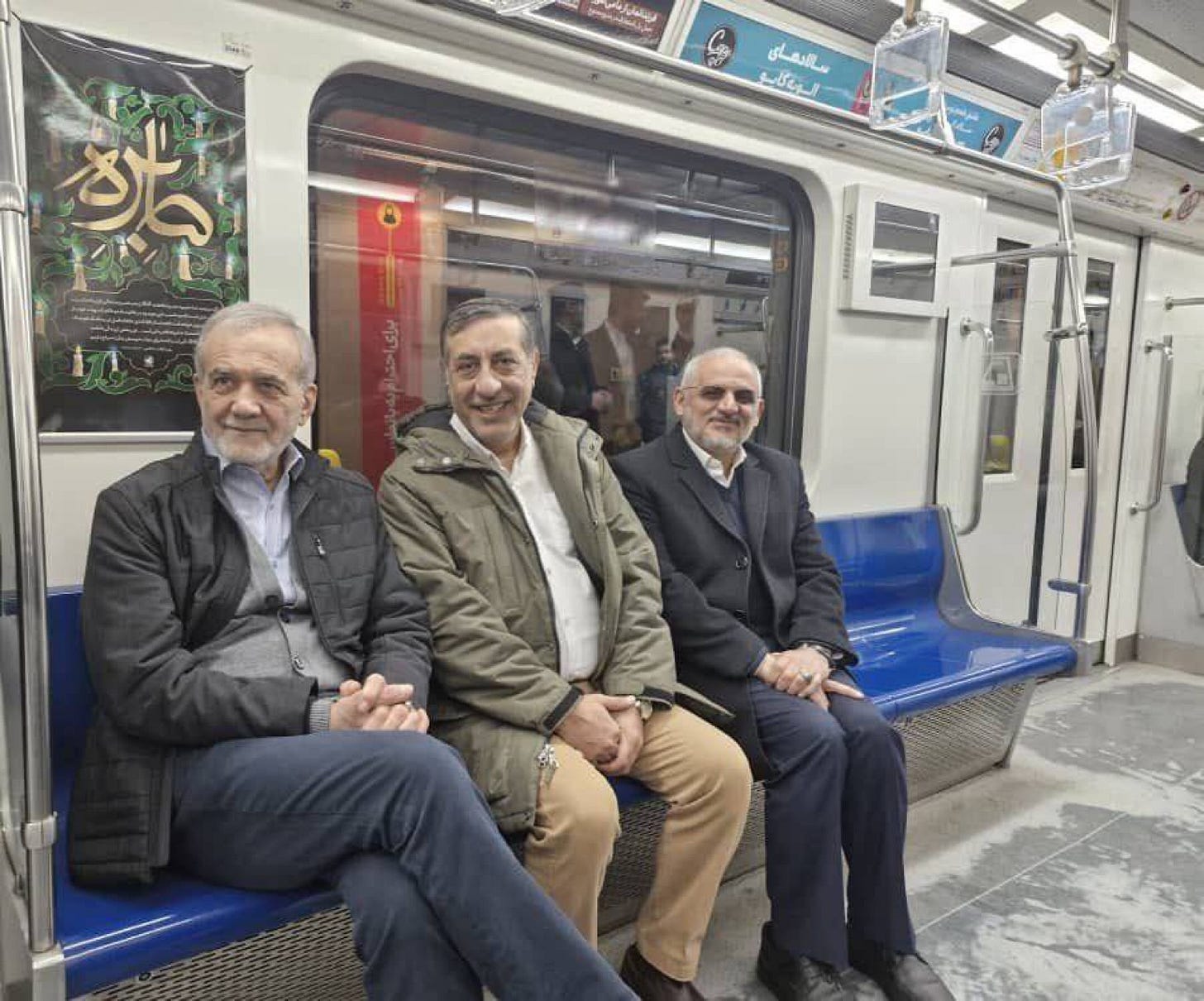Iran at standstill on talks with Trump
Flummoxed by mixed messages from the Trump administration, historic distrust and the lack of a US Iran envoy, Iran presses pause on moving forward with direct talks with US.
Even as Trump says he is interested in a deal with Iran, Iran appears to be at a standstill on how to deal with him.
Flummoxed by mixed messages from the Trump administration, historic deep distrust of the U.S.—especially after Trump in 2018 quit the Iran nuclear deal, and the lack of a new US Iran envoy, Iran has retreated in the past days from earlier expressions of cautious interest in direct talks with the United States.
“The US violated the very agreement itself… and withdrew from it,” Iranian Supreme Leader Ayatollah Khamenei told Iranian air force commanders Feb. 8, referring to the 2016 Iran nuclear deal, the Joint Comprehensive Plan of Action (JCPOA). “Therefore, negotiating with such a government is neither rational, wise, nor honorable, and should not be pursued.”
Even before Khamenei appeared to put the kibosh on direct talks last Friday, Iranian officials were taking a passive stance on pursuing engagement with the Trump administration, said Ali Vaez, director of the Iran program at the International Crisis Group.
“The Iranians appeared to be hoping for the best, while failing to…try to shape Trump’s approach during the transition and early days in office,” Vaez said. “They had no channels and no initiatives… while speaking to interlocutors, like the Europeans, who themselves were in the dark.”
The Iranians seemed inclined to wait for the Europeans to consult with the Americans on how they want to proceed with any diplomacy on Iran, he said.
The Iranians are also waiting in part for a U.S. Iran envoy to be named. Contrary to some previous reports, Trump’s special Middle East envoy Stephen Witkoff does not seem likely to be the lead U.S. point person on Iran, several Iran experts said in today.
“I think the Iranians are eager to start the process, but they are very much waiting for an Iran envoy to be named,” Barbara Slavin, director of Middle East programs at the Stimson Center, said on a Twitter Spaces convened today by the National Iranian American Council (NIAC). “And it's not Steve Witkoff…. Clearly he's got his hands full trying to maintain the Gaza ceasefire.”
Mixed US messages
“The problem we're facing right now…is that…even though Trump may want a deal, he has plenty of people around him…that have no interest in a deal and are far more interested in pushing maximum pressure to its logical conclusion, which is a military confrontation,” said Trita Parsi, executive vice president of the Quincy Institute, a think tank that is skeptical of US intervention.
Parsi pointed to comments Trump made last week as he signed a presidential memo imposing maximum pressure on Iran, while saying he didn’t wish to sign it and wanted a nuclear deal with Iran.
“So if you're sitting in Tehran, their concern is this is once again a situation in which Trump wants the deal, says the right things about a deal, but ultimately he cannot deliver on it,” Parsi, speaking on the NIAC Twitter Spaces forum, said. “Because his national security council is against it, and they will continue to sabotage any genuine efforts for diplomacy, as they did in the last year of his first term.”
“I'm going to sign it, but hopefully we're not going to have to use it very much,” Trump said as he signed National Security Presidential Memorandum/NSPM-2 imposing maximum pressure on the government of Iran on Feb. 4. “We will see whether or not we can arrange or work out a deal with Iran, and everybody can live together.”
“We’re going to see they cannot have a nuclear weapon,” Trump said. “With me, it's very simple. Iran cannot have a nuclear weapon. We don't want to be tough on Iran. We don't want to be tough on anybody, but they just can't have a nuclear [weapon].”
“I'd love to have a good relationship with Iran,” Trump said. “They just can't have a nuclear weapon.” Interestingly, he added, “Some of their leadership,… there are many people at the top ranks of Iran that do not want to have a nuclear weapon, just for that very reason.”
For now, the lack of a clear point of contact for the Trump administration on Iran is a roadblock, said Slavin.
“I don't think Trump cares really about what's in the language of these things,” Slavin said. “He's much more interested in sort of the nitty gritty of negotiations…But we need to see an envoy. So Trump needs to decide who he wants to talk for him on Iran.”
Iran’s currency value tumbled further against the dollar today, since Khamenei seemed to rule out direct talks with the United States. Iran’s more moderate-aligned President Masoud Pezeshkian is under pressure from voters to pursue diplomatic engagement some Iranians hope could ease the country’s economic difficulties.
“We are trying to live up to the slogans we gave and the claims we made,” Pezeshkian wrote on Twitter today, in Persian. “I have not forgotten the promises I made.”
Interestingly, several sources said they understand that no meeting between the Iranian ambassador to the UN and Trump advisor Elon Musk actually occurred during the US presidential transition last fall, as had been previously reported. One source said he understood that there were efforts to try to set up such a meeting or call, but that it got leaked before it occurred and did not take place.
Photo: Iranian President Masoud Pezeshkian (left), after giving a speech at a rally in Tehran, returned to his office by subway on Feb. 10. Photo posted to Twitter by Abas Aslani/Iran Nuances.
**

